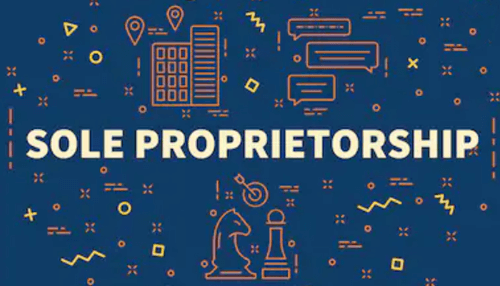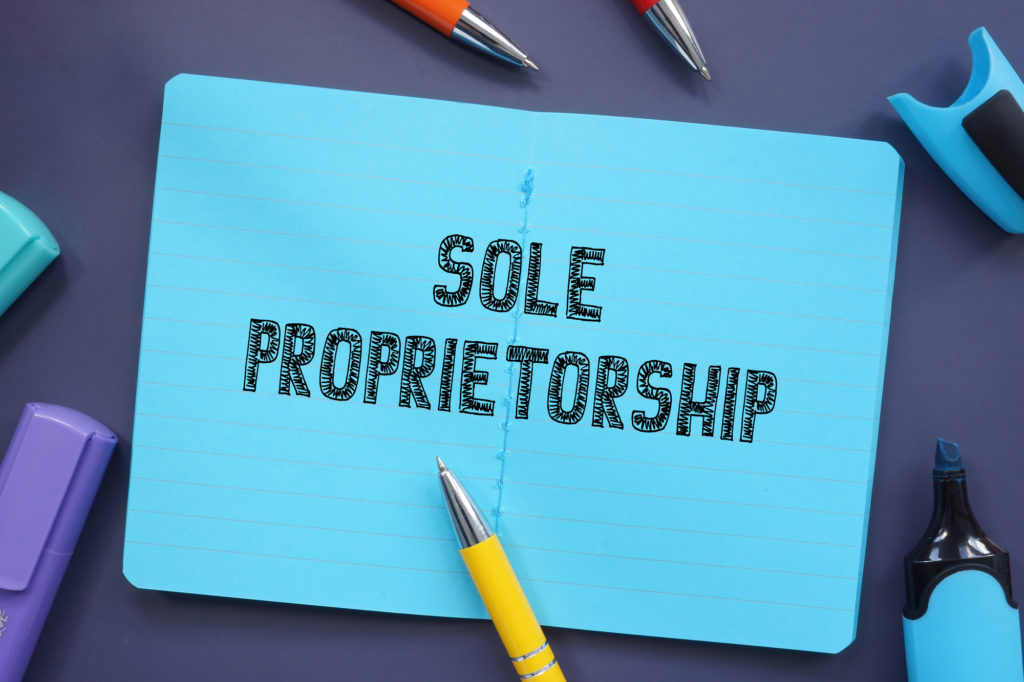Sole Proprietorship Firm/Business Registration
How to Start a Sole Proprietorship Firm Business
Types of Businesses in Pakistan:
There are four main business structures in Pakistan: sole proprietorship, partnership, company and family trust.
A sole proprietorship is a business owned and operated by one person. The owner is responsible for all aspects of the business, including liabilities and debts.
A partnership is a business owned by two or more people. Partners share responsibility for the business, including liabilities and debts.
A company is a separate legal entity from its owners. The owners of a company are not liable for the debts of the company.
A family trust is a legal arrangement in which property is held by one or more persons (the trustee/trustees) for the benefit of another person or persons of the family (the beneficiary/beneficiaries).
Meaning & Examples of Sole Proprietorship Firm Business
Proprietorships are businesses owned and operated by individuals.
A proprietorship is a business that is owned and operated by a single person. The owner is in complete control of the business and is the only one who can make decisions for the business. There are several advantages to owning a sole proprietorship, including complete control over the business, ease to set up and no need to file paperwork with the government. However, there are also some disadvantages, such as being personally liable for all debts of the business and having a harder time raising money. If you’re thinking of starting a business, you may want to consider a sole proprietorship. In this blog post, we will explore the meaning of a sole proprietorship business and some examples.

What is the Meaning of Sole Proprietorship Business?
A sole proprietorship business means a business, owned and operated by a single person
As you know, a sole proprietorship business is a business that is owned and operated by a single individual. This type of business has several advantages, including the fact that the owner has complete control over decision-making and operations. Also, sole proprietorships are less expensive to start up and run than other types of businesses. However, there are also some disadvantages to sole proprietorship businesses, including the fact that the owner is personally liable for all debts and losses incurred by the business.
Advantages of a Sole Proprietorship Business
Several Benefits of a Sole Proprietorship Business
There are many advantages of sole proprietorship businesses.
- One advantage is that the business owner has complete control over the business.
- The business owner can make all decisions about the business without having to answer anyone else.
- Another advantage is that the business owner gets to keep all of the profits from the business.
- The business owner also has flexibility in how they run their business.
- They can set their hours and work as much or as little as they want.
- Lastly, sole proprietorship businesses are relatively easy and inexpensive to start up.
Contact Us
Disadvantages of a Sole Proprietorship Business
Few Disadvantages of Proprietorship Businesses
There are a few key disadvantages of running a sole proprietorship business that is worth considering before taking the plunge.
First, as the business’s sole owner, you are personally responsible for all debts and liabilities incurred by the business. This means that if your business fails, you could be left with personal financial ruin.
Second, a proprietorship can be difficult to raise capital to expand its business. Because you are the only owner, potential investors may be hesitant to put money into your business without a clear exit strategy or path to profitability.
Lastly, sole proprietorships can be more difficult to scale than other types of businesses. As the only owner, you may find it difficult to delegate tasks and responsibilities as your business grows. This can lead to problems down the line as you try to expand your operations.
Examples of Successful Sole Proprietorship Businesses
There are many examples of sole proprietorship businesses that have been successful. One example is Wrangler Fashions, and Usmania Restaurants, which they started when they were just six years old. Another international example is the online retailer Amazon, which was founded by Jeff Bezos in 1994.
Other examples of successful sole proprietorship businesses include:
- A bake shop owned by a woman who uses her grandmother’s recipes
- A day-care centre business run by a woman who loves children
- A small clothing boutique owned by a fashion-savvy woman
Each of these businesses has one thing in common: they were all started by women who had a passion for what they were doing. And, because they were sole proprietorships, each woman had complete control over her business. This allowed them to create businesses that were uniquely theirs and that reflected their style and values.
Comparison of Proprietorship and Partnership Businesses
Key Differences Between Proprietorship and Partnership Businesses
There are several key differences between proprietorship and partnership businesses. For starters, proprietorships are owned and operated by a single individual, while partnerships are owned and operated by two or more individuals. This means that, in a proprietorship, the owner has complete control over the business, while in a partnership, the partners must share decision-making power.
Another key difference is that proprietorships are typically small businesses, while partnerships can range from small to large businesses. This is because it is easier to raise capital for a business when there are multiple owners involved. Finally, partnerships also offer some liability protection to individual partners, whereas sole proprietorships do not.
How to Start a Sole Proprietorship Business?
A sole proprietorship Business is Easy and Inexpensive to Start
As it is earlier mentioned, a sole proprietorship is a type of business that is owned and operated by an individual, this type of business is the simplest and most common form of business ownership. Sole proprietorships are easy to start and require little paperwork or extra costs.
To start a sole proprietorship, you will need to choose a business name, and business structure and obtain any necessary licenses/permits (if required) and an NTN from the FBR. You will also need to open a business bank account for your business. Once you have taken care of these initial steps, you will be ready to start operating your sole proprietorship.
A sole proprietorship business is easy to form and usually requires very little paperwork. The sole proprietor has complete control over the business and its finances. However, the sole proprietor is also personally responsible for all debts and liabilities incurred by the business.
Proprietorships vs. Partnerships: An Overview
As its name suggests, a proprietorship is a business that is owned and operated by a single individual. This type of business is relatively simple to set up and run and does not require any special licenses or permits. The owner of a proprietorship has complete control over the business and its operations and is the only one who can make decisions about the business.
A partnership is a business that is owned and operated by two or more individuals. This type of business offers some advantages over sole proprietorships, such as the ability to raise more capital and the ability to share liability among multiple owners. However, partnerships can also be more complex to set up and run than sole proprietorships, as partners must share decision-making power.
NUTSHELL
A sole proprietorship is the most common type of business structure. It is easy to set up and you are usually the only owner. As you have understood that a partnership is a business owned by two or more individuals.
Partnerships can be either general partnerships or limited partnerships. In a general partnership, all partners are equally liable for the debts and liabilities of the business.
In a limited partnership, there are one or more general partners who are responsible for the debts and liabilities of the business, and one or more limited partners who are only liable for the amount of money they have invested in the business.
There are a few key things to keep in mind when starting a sole proprietorship:
1) You will be personally liable for all debts and obligations of the business. This means that if the business cannot pay its debts, creditors can come after your personal assets.
2) You will need to obtain any necessary licenses and permits from the government.
3) You will need to keep good records of your income and expenses. This will help you track the financial health of your business and prepare for tax time.
4) You may need to register your business with the state or local government.
5) You will need to comply with any regulations that apply to your industry.

Contact us For Sole Proprietorship Firm Registration
We offer our services for sole proprietorship firm registration, in Karachi, Islamabad, Rawalpindi and Lahore.
Our rates for the registration of a sole proprietorship firm are very competitive.
The most important thing to do when starting a sole proprietorship is to choose the right business structure.

